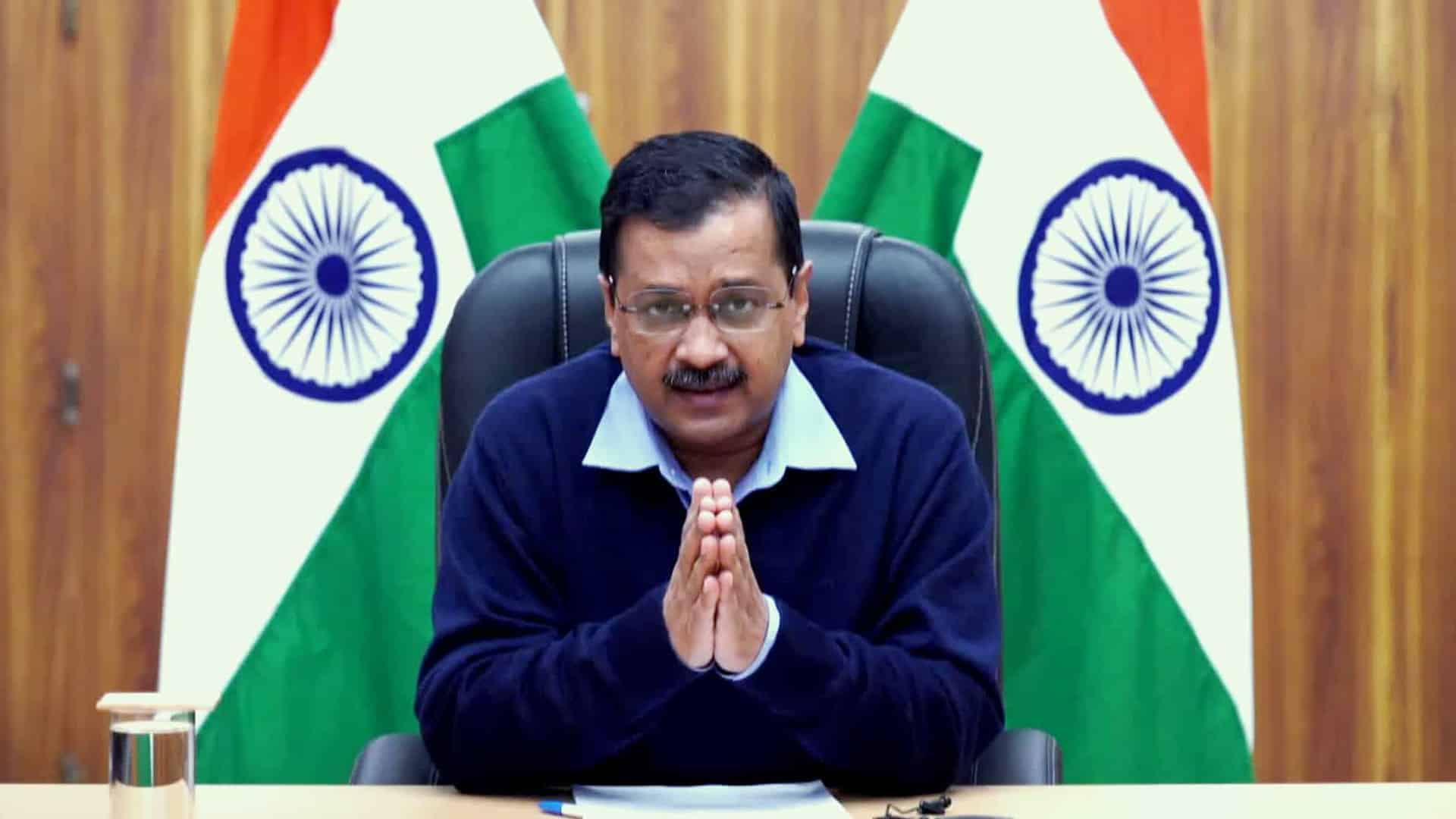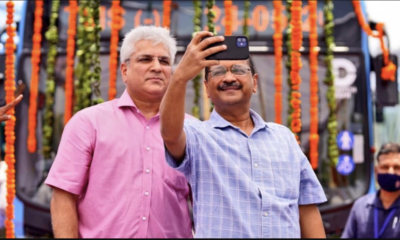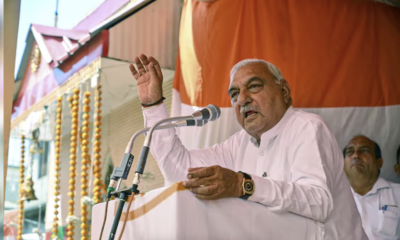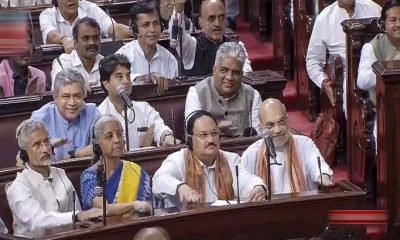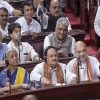Opinion
AAP seeking Hindu Gods on currency notes is competitive communalism at its best
I was covering the Delhi State elections in early 2020 and happened to be in the Ballimaran and Matia Mahal seats on the day of voting. This was only a few weeks before the Covid-19 pandemic entered the human lexicon. Both Ballimmaran and Matia Mahal are prominent locations in Old Delhi and have a majority Muslim population. At the polling booths, hundreds of burqa-clad women were queuing from morning to cast their votes. Almost everyone I met was forthcoming to state their voting choice – the Aam Aadmi Party (AAP) and Arvind Kejriwal. This trust in the party leader and their development agenda won AAP an absolute majority and Kejriwal’s stature as a leader became stronger. When I asked people in Muslim localities like Zakir Nagar the reason for their backing of Kejriwal, the answer was simple – he was honest, worked for everyone, and provided them security from the Bhartiya Janata Party (BJP) and its right-wing policies. For the Muslims in Delhi constantly voting for the Congress on just the promise of a BJP defeat, AAP was a better alternative.
Transformation of the Idealist Party
Two years later, AAP will perhaps not be happy with images of visible Muslims avowedly backing them. It is not because AAP has turned completely communal and has donned the (saffron) robes of Hindutva. It’s just because their politics has shifted dramatically in the last couple of years. The party now indulges in what can be termed as ‘Middle-class soft communalism’.
In India, many in the middle class not only consume bigoted news and Whatsapp forwards but at the same time pride themselves on not being violent and virulent against minorities. The demand for pictures of Lord Ganesha and Goddess Lakshmi on the Indian currency note is just another of AAP’s many attempts to tick on that soft spot of what many would call ‘Soft Hindutva’. The demand will never be fulfilled, but it brings them media space for a few weeks.
But this should be looked from a perspective of how AAP’s politics has changed. Their recent actions and statements do not directly harm Muslims but develops an atmosphere of unease from this competitive communalism.
This scenario also affects the party’s progressive politics, and is symptomatic of the wider change in Indian politics, where the BJP’s near-hegemony has pushed multiple political parties to experiment with Hindu right-wing ideas. AAP is essentially practising opportunist communalism, which historian Mukul Kesavam had once attributed to the Indian National Congress (INC).
AAP’s strategic silence during CAA protests and communal violence
The signs of this have been clear since AAP’s ambiguity over the Citizenship Amendment Act (CAA) protests and the ‘strategic’ silence during and after the gruesome communal violence in Delhi – the worst riots in the national capital since 1984.
The first indication of this shift toward communal opportunism came from AAP’s targeting of the Covid hotspot at the Muslim congregation of Tablighi Jamaat at a mosque in the Nizamuddin Basti neighbourhood at the beginning of the pandemic. The media coverage that followed was painly Islamophobic and religiously-motivated, something which even the Supreme Court of India spoke against.
However, many of us at the time were unaware of how the AAP profited from the media narrative that India’s increase in covid-19 cases could be traced to that particular congregation in Delhi. The Kejriwal government would later issue a daily bulletin which had a separate category for the mosque-related cases, thus, adding to the media narrative of blaming Muslims for the rise in infections in the country. The bulletin was removed only after the Delhi Minorities Commission had to issue a letter to the government. This was AAP’s attempts at gaining some lost ground from the bad press they had received from the alleged involvement of one of their own in the Delhi riots.
Proclivity towards Bigotry
AAP has categorically denied communalism as one of its natural proclivities. It has often proclaimed that it works for development with no favour or bias. When genocidal slogans were raised in Delhi’s Jantar Mantar in August 2021, AAP’s stoic silence was claimed to be a strategic restraint shown by a party of outspoken members known for its protest politics.
In May last year, AAP’s official Twitter handle tweeted a list of Muslim countries to bring home the point that the Narendra Modi government was focussing on giving vaccines to Muslim nations and was biased against Indians. This was another example of using communalism to put the BJP under pressure. AAP is aware that such claims and tweets are likely to get the attention of certain middle-class individuals who may have a proclivity for intolerance against minorities.
Thus, the demand for the change in pictures of the currency note to Hindu gods can be attributed to AAP’s challenge to the BJP through competitive communalism, especially at a time it is involved in a pitched battle against the BJP in the State of Gujarat. It is the state from which the Prime Minister Narendra Modi hails from – a BJP stronghold since 1995.
What the AAP is doing is that it is pushing the BJP’s envelope further and challenging them with their ‘Hanuman Bhakti’ agenda as a counter to BJP’s Ram Bhakti. This assists AAP in gaining traction in Delhi and beyond, and at the same time puts the BJP on the back foot for there is a new challenger who speaks in the same language as them to win elections. The BJP was clearly on the back foot for when Kejriwal announced his demands, a BJP MLA had to appear on live television and proclaim India’s secular ethos as the reason for why such a demand was not possible. Interestingly India’s secular ethos is not affected when supposedly Muslim-sounding names of cities are changed by the same BJP.
AAP does this fully recognising that its demand for new currency notes represents majoritarian appeasement that pushes Indian realpolitik further to the right and has long-term consequences for the nation. It pushes India towards being a nation where free electricity, better schools and all the good developmental work by the Aam Aadmi Party will not matter, as people would be happy with populist majoritarian promises. The party should also consider the example of Indonesia, which Sameer Arshad Khatlani described as a “beacon of hope” because it is a Muslim-majority country which actually has the picture of Lord Ganesha on its currency note, not as a sign of minority appeasement but as an example of harmony and a display of their secular credentials.
India as a nation needs more than religious promises. It needs actual development, which was the source of Aam Aadmi Party’s rise but has now taken a backseat for something much easier.
Disclaimer: The views and opinions expressed in this article are those of the authors and do not necessarily reflect the official policy or position of the publication


